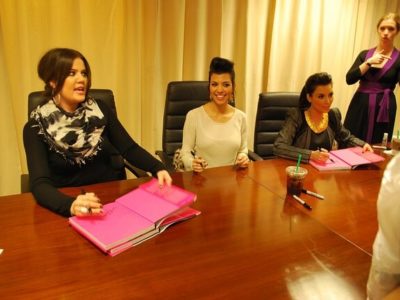It’s no secret that people can’t get enough of reality television. Whether it’s 25 men competing to win the heart of The Bachelorette, or MTV’s The Real World where “people stop being polite and start getting real,” American TV audiences are intrigued by reality shows of all kinds. But before you reality viewers grow too attached to your favorite shows, it’s important to understand the reality behind the “reality” television production process.
While we’d all like to believe our favorite reality shows are based on true-life events, Michael Chomet, a NYC-based TV executive producer, says people should pay more attention to the credits following reality TV programs; often credit is given to “story producers” who play an important role in coming up with the “story arc” of a series.
“For example, the story producer may plan out the story arc of a program by saying, ‘OK, we want these particular characters to break-up by episode three, and get back together by episode eight,’” Chomet said.
Almost all reality shows are “soft scripted,” but the amount of scripting varies from show to show, Chomet said. While some are considered soft scripted, others are “hard scripted,” where the program’s “showrunner” will require cast members to say exactly the lines they are given.
David Rupel, an Emmy-award-winning reality TV showrunner, is no stranger to the concepts of soft and hard scripting. As Rupel explains in his Writers Guild of America article: How Reality TV Works, “the term unscripted is a fallacy.”
“No we don’t write pages of dialogue,” Rupel said,” But we do create formats, cast people based on character traits and edit scenes to create a powerful, intriguing tale.”
Now, the point of taking a behind-the-scenes look at reality TV is not to guilt you into endless remorse about having spent countless hours watching The Kardashians, nor is it intended to make you distrust reality TV forever. Instead, the goal is simply to make TV audiences aware, so that they can decipher between real-life and entertainment.
Abby Schneider, a junior at Illinois State University, says that even though she knows reality TV is scripted, it doesn’t discourage her from watching her favorite reality shows; although, she does care if it’s too scripted because she wants to believe in the storyline.
“For example, on The Bachelorette, the guys have been saying the sweetest things to [the bachelorette] and who knows if they meant it or not!” Schneider said.
When asked what her favorite thing about reality TV is, Schneider answered, “there's always drama happening and it gives me something to do on boring nights.”
Whether you watch a given show for the exciting drama or another because it allows you a look into the lives of your favorite celebs, one thing is certain, no two shows operate identically and all reality shows are formatted so that they attract viewers. As Rupel put it, “In short, we are story tellers. We just get there a little differently.”



















